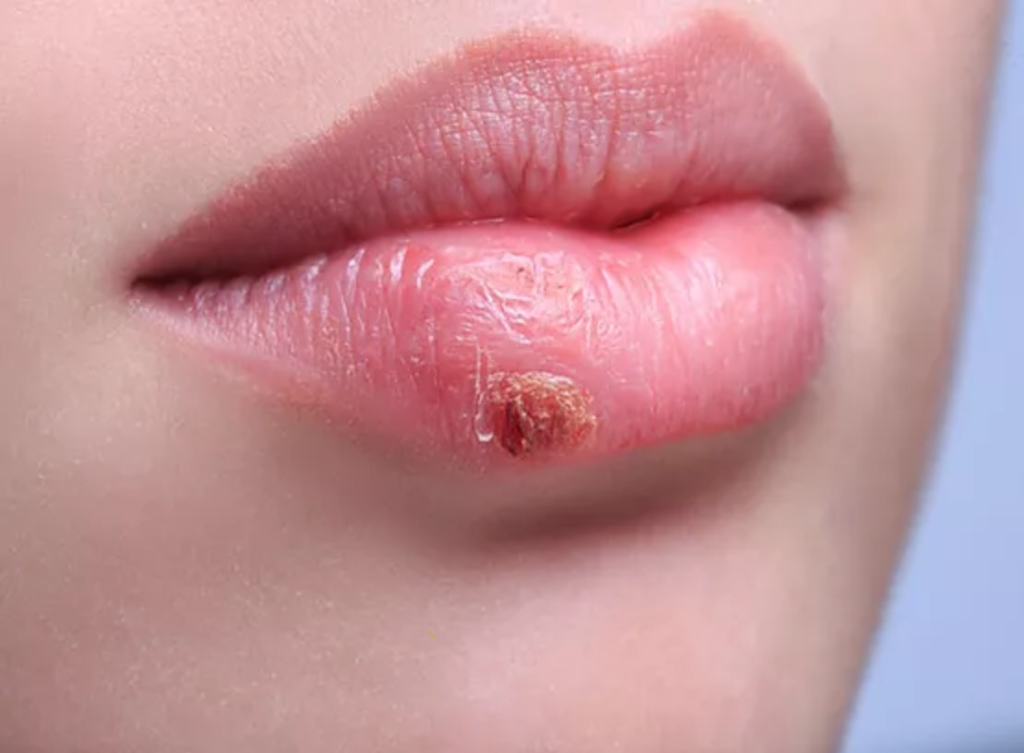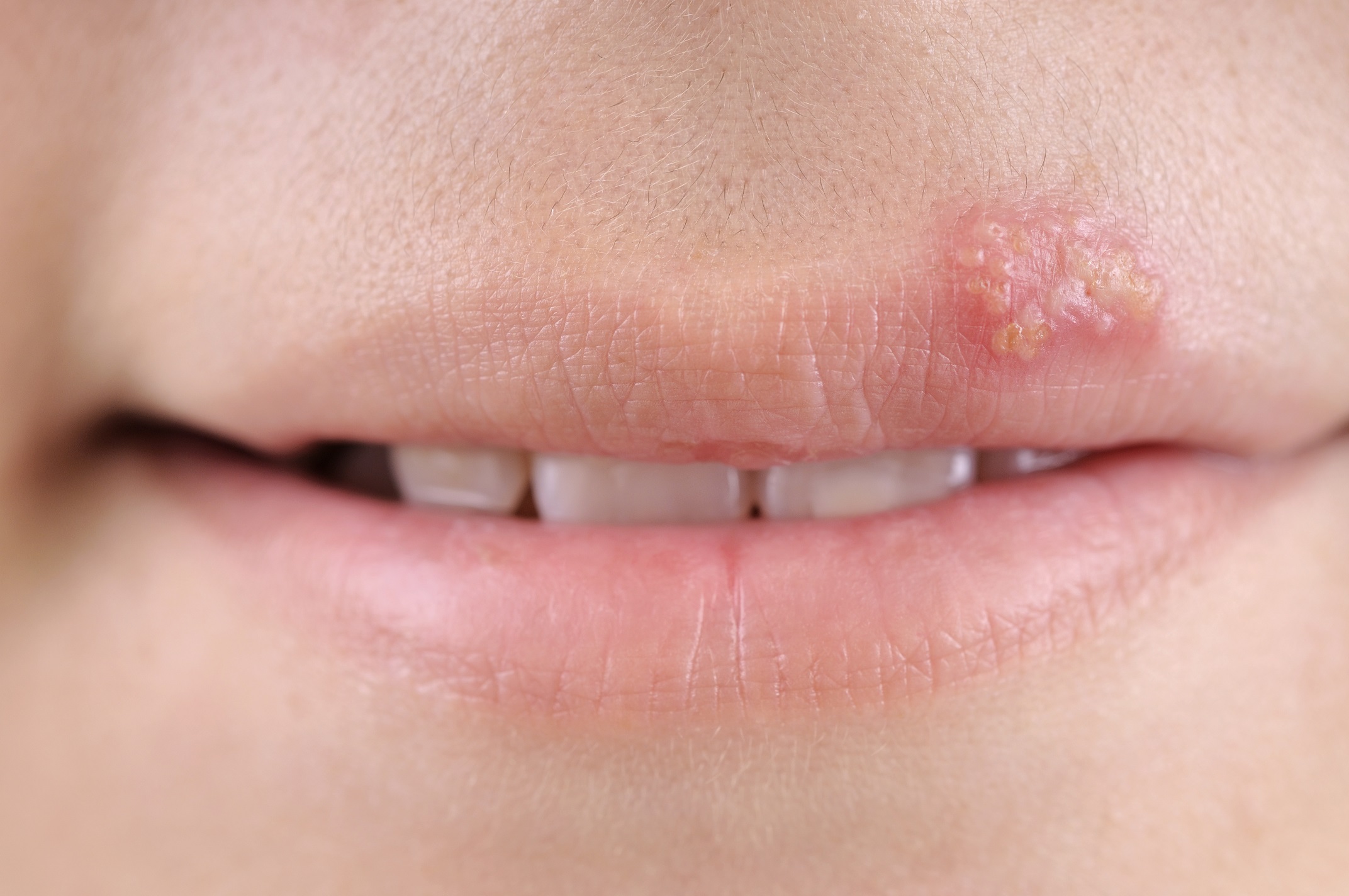Cold sores are fluid-filled blister-like pockets beneath your skin surface around your mouth or on your lips. The cold sores normally last for 7-10 days. In the meantime, they may break open, ooze out, and crust over. Natural treatments and home remedies may help pacify the discomfort.
Common Causes of Cold Sores
The cold sores are often caused by viruses in about 90% of adults all over the globe. Some people may experience recurring breakouts while others may never notice any visible symptoms.
Cold sores indicate the presence of the herpes simplex virus or HSV-1. The virus HSV-2 may also cause cold sores in some people.
Whenever a person gets infected with the virus, a breakout of cold sores follows within a few days. In some people, the initial breakout may be worsened by fever, sore throat, pain, aches, and a headache.
The virus may remain dormant for a while within the nerve cells after the initial breakout. Infected people may experience flare-ups at any time triggered by conditions like stress, surgery, fevers, hormonal fluctuations, sun exposure, and illness.
Some of these conditions may be unavoidable. However, few simple practices and remedies can help calm the outbreak or shorten the duration of the cold sores.
Home Remedies to Treat Cold Sores

Prescription antiviral medications can effectively prevent and treat the outbreak of cold sores. You can also try the following home remedies as a secondary but effective treatment:
Lemon Balm
Lemon balm or Melissa Officinalis has antiviral properties. It effectively helps in reducing the redness and swelling of the cold sores. It also prevents further infection of the blisters. You can use a lip balm having at least 1% of lemon balm. Alternatively, you can get similar benefits by applying a compress prepared with lemon balm infusion.
Over-the-counter antiviral medications
Drugs containing benzyl alcohol or docosanol can help in effectively reducing the duration of cold sores. You can also reduce the duration of outbreaks by using lysine as an oral supplement and applying as a cream at the site of infection.
Applying ice
Ice can effectively reduce inflammation and ease out the discomfort of the cold sores, however, it may not decrease the duration of the outbreak. You can apply a pack of ice directly onto the cold sores for temporary relief.
Aloe Vera
Aloe vera is a commonly growing houseplant whose gel is used as an effective remedy to treat multiple ailments and medical conditions. Its antiviral and anti-inflammatory effects inhibit the spread and reduce the severity of cold sores.
Sunscreen
A coat of sunscreen can protect your lips for the duration your cold sores are healing. A regular application of sunscreen can also help in reducing future outbreaks. You should apply a uniform coat of at least SPF 30 sunscreen whenever you move out in the sun.
Stress Reduction
Stress is considered to be a primary factor in activating the herpes virus out of dormancy. You can prevent the outbreak of cold sores by reducing the levels of stress in your life. You can regulate your stress levels by practicing mindful meditation, exercising regularly, and avoiding the primary causes of stress in your life.
Over-the-counter drugs
Over-the-counter medications like ibuprofen or acetaminophen can effectively ease the pain related to cold sores.
Prescription Treatments
Cold sores are rarely a medical emergency and usually go away after some days on their own. However, you can speed up the duration and process of healing with several prescription treatments such as antiviral medications and creams.
Consult your Doctor
You should seek medical advice and consult your doctor if you experience multiple recurring outbreaks. You can prevent future outbreaks by taking oral antiviral medications all year round. Some prescription treatments include medications like acyclovir (Zovirax), famciclovir (Famvir), valacyclovir (Valtrex), and penciclovir (Denavir).
Simple home remedies, practicing stress reduction, and maintaining a healthy lifestyle can help you reduce the possibility of future breakouts of painful inflammatory cold sores.
You should also maintain oral hygiene and avoid salty, spicy, or acidic foods that may worsen the condition. Eat foods loaded with vitamin E and vitamin C. Never touch the cold sores to avoid risking the spread of infection.





